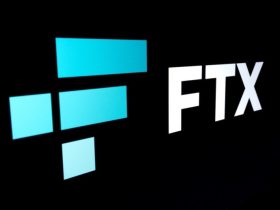Crypto asset management giant Grayscale just filed paperwork with the US Securities and Exchange Commission (SEC) to create a new Ether (ETH) Futures Exchange Traded Fund (ETF), as per a report by the .
Grayscale filed for the ETF under the Securities Act of 1933, having also previously filed for an Ether Futures ETF under the Investment Company Act of 1940.
While comparable have been approved by the SEC under both acts, most ETFs are filed under the 1940 act.
Reports in the crypto press back in late August suggested there is a strong possibility that the SEC will approve a number of .
That news made the price of surge at the time amid front-running from traders, because a wider availability of Ether Futures ETFs could indirectly increase demand for the cryptocurrency, assuming institutional investors start buying up Ether Futures ETFs once they go live.
was last changing hands around $1,640, just to the north of its 21DMA.
Price Prediction – Where Next for Ether (ETH)?
The fact that looks set to close above its 21DMA following a fairly convincing break above the level in the past two days is a positive for the cryptocurrency’s near-term price outlook.
The 21DMA had previously been acting as an area of strong resistance for the past more than two-months.
A break above this level sets the stage for a potential rally to the 50DMA just above $1,700 and even the late August highs around $1,740.
Assuming ETH can close above its 21DMA, near-term price predictions are likely to turn modestly more bullish.
But traders should keep an eye on upcoming macro risk events, such as Wednesday’s rate decision and .
The central bank isn’t expected to change interest rates, but is expected to signal that more rate hikes remain possible, as well as release a new summary interest rate projections from its policymakers plus new economic forecasts.
That could impact ETH, depending on how the US bond market and US dollar react – a dovish meeting (where expectations as to how high interest rates will go/remain fall) would weigh on the yields and US dollar, likely boosting ETH, and vice versa.
Ether traders may also remain reluctant to enter big positions in the cryptocurrency as they remain in wait-and-see mode ahead of October’s expected Futures ETF decisions from the SEC.
Ether (ETH) Alternative to Consider
One problem with an Ether Futures ETF is that its buyers won’t be set to benefit from the solid yield they can generate from Ether staking.
To benefit from Ether staking yields, which are normally in the region of 4%, investors would do better to buy the actual ETH token and set up a staking node, or buy a ETH liquid staking derivative such as stETH.
Investors interested in a riskier cryptocurrency with a much better staking yield should check out a newly launched token called (BTCBSC).
Bitcoin BSC is a BEP-20 token issued on the Binance Smart Chain but with pretty much the exact same tokenomics of Bitcoin, although Bitcoin BSC winds the clock back to 2011, when Bitcoin traded at $1 per token.
Indeed, Bitcoin BSC tokens are currently being sold in presale for $1 each, with over $2 million already raised.
Bitcoin BSC holds various advantages over Bitcoin – it is greener thanks to the Binance Smart Chain’s lower energy consumption and is more readily available for use in the Binance Smart Chain’s growing Decentralized Finance ecosystem.
Moreover, Bitcoin BSC holders can stake their tokens to benefit from BTCBSC issuance according to the same schedule that Bitcoin was on back in 2011.
That means BTCBSC holders could be looking at double or even triple digit annual yields if they stake their tokens.
A similar project BTC20 – the exact same concept but issued as an ERC-20 token on Ethereum – was able to quickly sell out a blockbuster $6 million presale and then post gains of as much as 6x, while BTC20 is still trading above its presale price of $1.
Bitcoin BSC is thus an opportunity for those who missed BTC20 to get in early.
Bitcoin BSC could do even better than BTC20 given the Binance Smart Chain’s faster transaction speeds and lower fees, making for a better trading and DeFi experience.
Investors need to move quickly, as the token’s hard cap raise target of just under $4 million will likely soon be reached.






